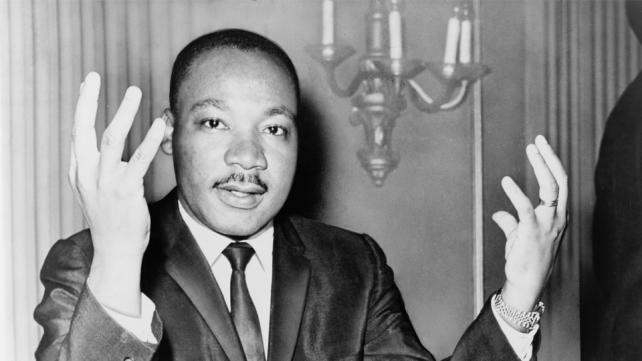
Last Friday, I sat with the son of Martin Luther King Jr. We had breakfast with other interfaith leaders and the mayor of Chicago, Richard Daley, who was the host of the event. Next to me was an interfaith veteran who knew a good part of Chicago's interfaith history. He told me the African-American pastor sitting next to Mayor Daley on our table was not able to build his church for seven years because nobody would lend him the money in Chicago in the 1960s. For years, his church building remained at the foundation level. His crime was that he was among those people who had invited Martin Luther King Jr. to the city. The father of Mayor Daley, who was mayor of the city in those days was angry that some African-Americans had invited the civil rights leader to Chicago and therefore managed to punish the church by "somehow" denying it funding.
Fast forward 40 years and the current Mayor Daley has not only apologized to this African-American Church leader for what his father did, but they have also become friends. And on this day, here was Mayor Daley sitting next to the son of Martin Luther King Jr., who transformed America by unleashing the power of civil disobedience for civil rights.
Witnessing these small exchanges between the sons of men who had been on opposing sides of the civil rights movement, I realized how far America has come.
Growing up in Pakistan, and still in early high school, I celebrated with Muhammad Ali when he won the boxing heavyweight titles and cried about his losses. I read the serialized Urdu translation of the Autobiography of Malcolm X. I knew of Martin Luther King Jr., but not a whole lot. I knew about the protests against the Vietnam War in the United States. I even received a gift from the American Embassy in Pakistan in the form of a book on student protest in America.
But being in Pakistan, I, like most Pakistanis, never imagined a situation where a person could not enter a restaurant of their choice or sit wherever they like on a bus simply because of the color of their skin. Although most Pakistanis are brown-skinned, there are areas where people are black and their hair is curly. But never ever in our collective memory could Pakistanis imagine that you could not eat at the same place or be on the same bus or in the same mosque as someone who is darker-skinned. That universality of Islam and basic racial equality was there, despite the fact that Shaytan is with Muslims as he is with anybody else with racist attitudes and slurs. Then there are leftover attitudes of the Hindu caste system, since most Pakistanis are former Hindus and Buddhists. Our parents knew about this. We had heard from our parents about the situation of untouchablility in the caste system. But that is something we did not personally experience living in Pakistan.
During the speeches at that interfaith event, Mayor Daley said: "We must continue working to ensure equal opportunity for every individual from every background," said Mayor Daley. "That is the best way to honor Dr. King's memory, and to make sure that our country meets his challenge to live up to its creed." I was asked to lead the audience in unity prayers.
One of the most important things Martin Luther King III said during his speech that struck me was his family's sacrifice to continue struggling for civil rights even after his father's murder, which happened when he was only ten years old. He mentioned how on the day of the funeral, his mother decided to carry on her husband's mission. And she went to lead a march for which her husband could no longer attend.
There are hundreds and thousands who struggled and suffered for the cause of civil rights. A few months ago Rosa Parks passed away. Her sacrifices were critical in helping launch the civil rights movement.
But the question for Muslims who have just celebrated the sacrifices of Abraham, Hajira and Ismail, is that how much are we aware of the struggles of civil rights and poor people in our country.
Muslims must remember that most of us or our parents could not have been allowed to even enter this country due to racist immigration laws that were lifted largely due to the Civil Rights movement.
Similarly, equal opportunity in employment and education, as well as a lot of anti-discrimination legislation are the fruits of the work of those who struggled in the 1960s and 70s.
Today we can see a wholesale reduction of civil rights and equal treatment, especially of Muslims. Although it is partly racism and partly Islamophobia, we need to ask ourselves how we are going to handle this challenge. We have failed to explain and show how the Muslim community is suffering because of the deterioration in civil rights in America. Nor is the challenge of Muslim civil rights even discussed on a large scale at Islamic conferences and events here in the United States.
The Federal government has admitted that at least 27,000 Muslims have been interrogated by the FBI since 9/11, while conservatives estimates by human rights, community and Muslim groups put the number closer to 90,000; it has conceded that over 6,000 Muslims were detained or arrested while conservative estimates put the number at 15,000; over 3,000 Muslims have been deported and over 13,000 are in the process of being deported.
As Black history month begins on February 1, let us use this month to reflect on what strengths America acquired through the civil rights struggle and in the absence of a focused campaign, how much we are suffering as a community. Here are the following suggestions:
-
Attend and support activities commemorating Black History Month
-
Read about the civil rights struggle and how it affected America. Note similarities between what African-Americans went through and what American Muslims are enduring today, although there is no comparison to what African- and Native-Americans faced in terms of racism.
-
Write an article about your findings and submit it to your local or campus newspaper connecting the erosion of civil rights.
-
Help your mosque arrange a program about the deterioration of civil rights in America today. Don't let it just focus on Muslims though. Include speakers who can talk about the topic in general as well.
-
Start a community discussion via email or at an actual meeting to talk about the deterioration of civil rights in America and how it is affecting the Muslim community.
-
Help your mosque organize a program about the contributions of Africa and Africans to Islamic civilization
-
Encourage your Imam to give a Khutba about racism, the universality of Islam, African Muslim heroes and heroines, etc. like Umm Ayman, Mansa Musa, Uthman Dan Fodio and Malcolm X on every Friday of February
-
During the month, read the Autobiography Of Malcolm X to fully understand the history of racism and brutality against African-Americans in the United States, as well as its effects on the psyche of this community. Read other books that offer the same information as well
-
Read bedtime stories to your kids about African Muslim heroes as well as African Muslim civilization like Mali and point out that it was an African nation that offered the first refuge for Muslims.
-
Help your Muslim Students' Association organize talks and seminars about the African contribution to Muslim civilization.
-
Help your local library set up a display about the same topic.

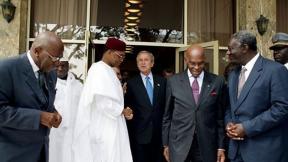
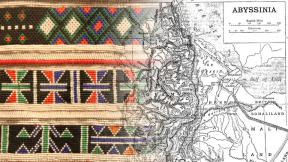
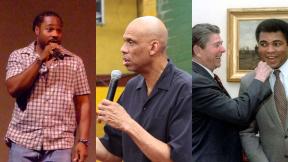
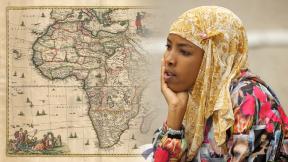
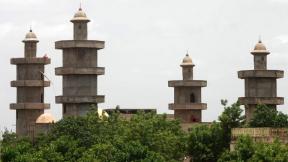


Comments
We need to get off the color thing, and start livinglike the way god wants us to live(As One). We even speak of it in the consitution(One Nation Under God). It's good that people are trying to change that, but we are here for one purpose(To worship God alone). If we put it in our heart and in our action, we don't need anyone to handle problems. God is in control. We must realize that no one has any right to take the rightsor life from anyone but God. On the day of judgement, we will be separated by our deen and not our color.
Location
Alhamdulillah, Mujahid Bhai for your important reminder. All Muslim Organizations should work harder to understand and recognize the sacrifices of African American Community and work togeter for upholding the civil rights which is God's gifted.Jazak Allah Khair and was salam
Location
I am African-American and I was really moved by your article. I am glad to see that the Muslim community is starting to recognize the contributions and struggles of African-American. WELL DONE!
Location
Add new comment